The African market is a patchwork quilt of cultures, economies, and consumer habits. With its growing population and rising middle class, this continent presents a treasure trove of opportunities for businesses.
Understanding what sells can make the difference between a thriving enterprise and a struggling venture. In this article, we’ll explore the top-selling products in Africa and why they resonate so well with consumers. Whether you’re a local entrepreneur or a global brand, these insights could help steer your business in the right direction.
Daily Necessities
When looking at the African market, daily necessities play a crucial role in the thriving consumer economy. These are the products that people use every day, making them indispensable and consistently in high demand. Understanding what qualifies as a daily necessity on this diverse continent involves recognizing the unique challenges and lifestyles that shape consumer behavior.
Items like soap, toothpaste, and basic hygiene products top the list of daily necessities. According to a 2023 report by Statista, the personal care market in Africa is projected to reach nearly $13 billion by 2025. These products are essential for maintaining basic health and hygiene, a priority that cuts across all income levels and regions. Brands such as Unilever and Procter & Gamble have established strong presences in the market, demonstrating the lucrative potential of daily necessities.
Food items also constitute a significant portion of daily necessities. Staple foods like maize, rice, and wheat are not just crucial for daily sustenance but are deeply embedded in the cultural fabric of many African societies. Local markets bustle with activity as vendors sell fresh produce, grains, and other food staples. According to the Food and Agriculture Organization, Africa is home to about 33 million smallholder farms, comprising 80% of all farms on the continent. This local production shapes the availability and affordability of staple foods.
The importance of clean water cannot be overstated. Access to safe drinking water is a daily necessity that affects millions of Africans. Innovative solutions, such as portable water purifiers and community wells, are in high demand. Companies specializing in water purification systems have found a responsive market within the continent. A UNICEF report highlights that in sub-Saharan Africa, 400 million people still lack basic drinking water services, emphasizing the critical need for clean water solutions.
Energy sources also feature prominently on the list of daily necessities. In areas with unreliable electricity grids, alternative energy solutions like solar panels and rechargeable batteries are vital. The International Renewable Energy Agency notes that Africa has the potential to become a renewable energy powerhouse, with solar energy being particularly promising. Products like solar lamps and chargers are increasingly popular, offering practical solutions for everyday energy needs.
Even in the realm of daily necessities, technology is making its mark. Mobile phones and basic tech gadgets are no longer luxuries but essential tools for communication, banking, and accessing information. The World Bank reports that Africa is the fastest-growing mobile phone market globally. Affordable smartphones and mobile services are crucial, enabling people to stay connected and access essential services, including mobile banking and healthcare information.
"Investing in daily necessities in Africa is not just about tapping into a market; it's about understanding the diverse needs and improving the quality of life for millions," says Dr. Ahmed Abdi, an economist specializing in African markets.
Within the category of daily necessities, there’s also a focus on locally produced goods. Items like handmade soap, local textiles, and indigenous food products not only meet daily needs but also support local economies. Consumers appreciate products that reflect their cultural heritage and contribute to sustainable development. This trend underscores the value of understanding local preferences and leveraging them to build stronger market ties.
In summary, daily necessities in Africa cover a wide range of products, each addressing fundamental needs. From personal care items and food staples to clean water and energy solutions, these products are indispensable. Businesses that understand the unique demands of African consumers and can adapt to meet these needs will find ample opportunities in this vibrant market. Leveraging local production and embracing innovative solutions are key strategies for success in providing daily necessities.
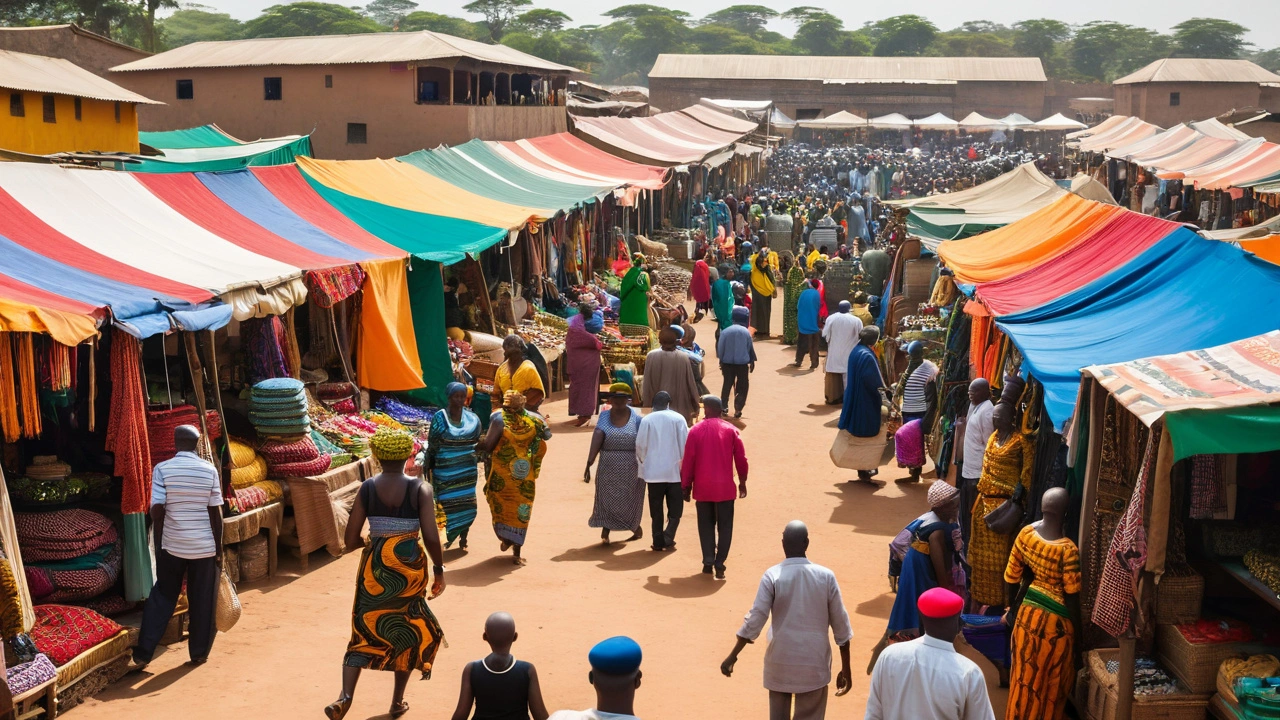
Tech and Gadgets
Africa's tech landscape is rapidly evolving, with a strong appetite for mobile technology leading the charge. The continent has skipped the desktop phase of technology adoption and jumped straight to mobile-first solutions. Smartphones are ubiquitous; their affordability and functionality making them the device of choice for many Africans.
In countries like Nigeria, Kenya, and South Africa, locals often prefer smartphones over traditional computers. Companies like Tecno, Infinix, and Itel cater to this demand, offering budget-friendly yet robust devices. The affordability of these gadgets, combined with ever-improving internet services, makes them highly desirable. Not surprisingly, mobile phones are among the top-selling gadgets in many African nations.
There is also a rising demand for other tech gadgets such as tablets, laptops, and wearables. Tablets are particularly popular among students and educational institutions due to their versatility and ease of use. Companies like Samsung and Huawei have made notable inroads into this market, offering products that strike a balance between performance and cost.
Wearable technology, such as smartwatches and fitness trackers, is also gaining ground. These devices are not just fashion statements but also practical tools for health monitoring and connectivity. Brands like Xiaomi and Fitbit have captured significant market share by providing quality wearables at affordable prices.
The CEO of a leading tech company aptly said, "Africa represents the future of mobile expansion, with its dynamic and young population constantly seeking new ways to connect and innovate."
The expansion of tech hubs across the continent further fuels the demand for gadgets. Cities like Lagos, Nairobi, and Cape Town are becoming tech centers, attracting investments and fostering startup ecosystems. This growth is supported by government initiatives aimed at improving infrastructure and digital literacy.
In addition, there's a growing interest in renewable energy solutions for tech devices. Solar-powered gadgets are particularly beneficial in areas with limited access to electricity. Companies are innovating in this space, providing solar chargers and mobile power banks that are incredibly useful in rural and remote areas.
Another interesting trend is the increasing use of mobile money and fintech solutions. Services like M-Pesa in Kenya have revolutionized the way people handle transactions, making smartphones indispensable tools for daily life. The integration of payment systems into mobile devices has bolstered their sales, as consumers look for technology that simplifies their financial activities.
As the African market continues to grow, so does the opportunity for tech and gadgets. For businesses, understanding the unique needs and preferences of African consumers is crucial. Offering products that are not only affordable but also reliable and functional can make a significant impact.
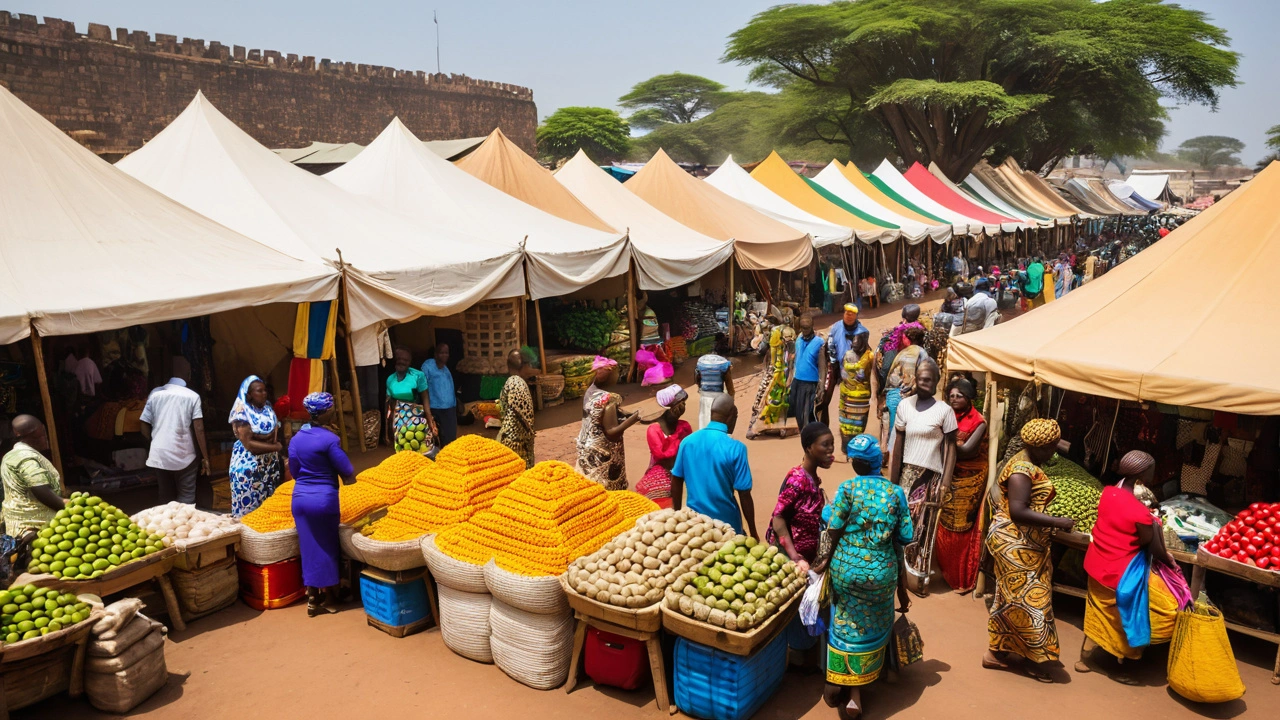
Fashion and Beauty
Fashion and beauty products are experiencing a major boom across Africa, blending traditional influences with modern trends. The fashion scene is vibrant, marked by an intertwining of local textiles and Western-style clothing. Many African designers like Adebayo Oke-Lawal and Laduma Ngxokolo are gaining international recognition, showcasing the continent's rich heritage through contemporary styles that resonate with both local and global audiences.
Beauty products, particularly skincare products, are also a hot item. African consumers are increasingly interested in products tailored to their unique skin tones and conditions. Brands like Shea Moisture and Black Opal pay close attention to these needs, creating a loyal customer base. According to a report by Euromonitor International, the beauty and personal care market in sub-Saharan Africa is expected to grow at a compound annual growth rate of 8%.
A key aspect driving the fashion and beauty industry forward in Africa is the rise of e-commerce. Platforms like Jumia and Konga have made it easier for consumers to access a wide range of products from the comfort of their homes. This shift has not only democratized shopping but also given small-scale vendors a platform to reach a larger audience. A study by McKinsey & Company highlights that online shopping is a growing trend in African cities, with fashion and beauty products being among the top categories.
Endorsements from local celebrities and influencers are another reason why fashion and beauty items are flying off the shelves. Public figures like Bonang Matheba and Tiwa Savage have significant followings and their endorsements lend credibility to products, driving massive sales. This is not just a pattern seen in the elite circles but also among everyday consumers who look up to these figures as style icons.
Another interesting development is the focus on sustainable fashion. Consumers are growing more aware of the environmental and social impacts of their fashion choices. Brands like SOKO Kenya and Studio One Eighty Nine are making waves by combining fashion with social causes, offering ethically-made products that cater to the environmentally conscious buyer. This trend is gradually catching on and could shape the future of fashion in the region.
The beauty segment in particular shows an increased demand for organic and natural products. With Africa’s rich biodiversity, there is a wealth of natural ingredients like shea butter, aloe vera, and baobab oil that are integral to many beauty formulations. This local sourcing not only boosts the economy but also aligns with the global move towards clean beauty.
African consumers are not just buying products; they are buying into a culture and a lifestyle. They want to connect with brands that resonate with their own identity and values. – Euromonitor International
In addition, fashion and beauty expos and events are also contributing to the buzz. Major cities such as Lagos, Johannesburg, and Nairobi host annual fashion weeks that attract designers, models, and fashionistas from around the world. These events are more than just runways—they are hubs of commerce and networking that spur further growth in the industry.
So, for businesses looking to tap into Africa's burgeoning fashion and beauty market, understanding these dynamics is crucial. These sectors are not just about aesthetics and trends; they are deeply connected to the cultural and social fabric of the continent. From leveraging e-commerce platforms to catering to the desire for sustainable and locally-sourced products, there are numerous ways to engage with this exciting market.
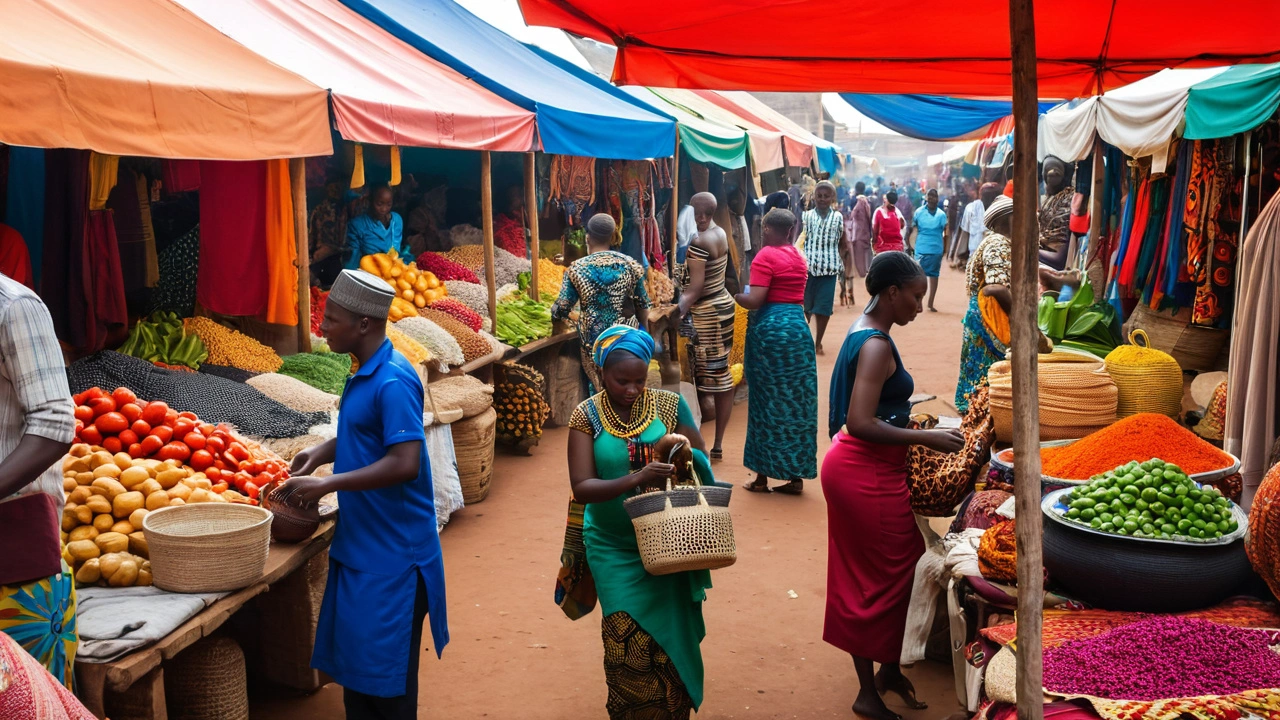
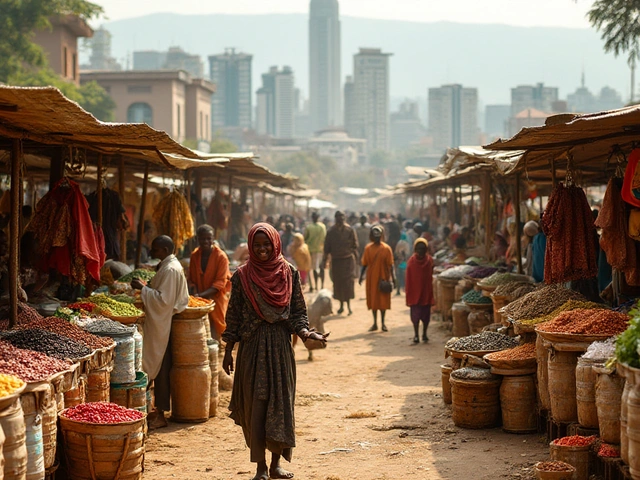 Most Profitable Investments in Ethiopia for 2024
Most Profitable Investments in Ethiopia for 2024
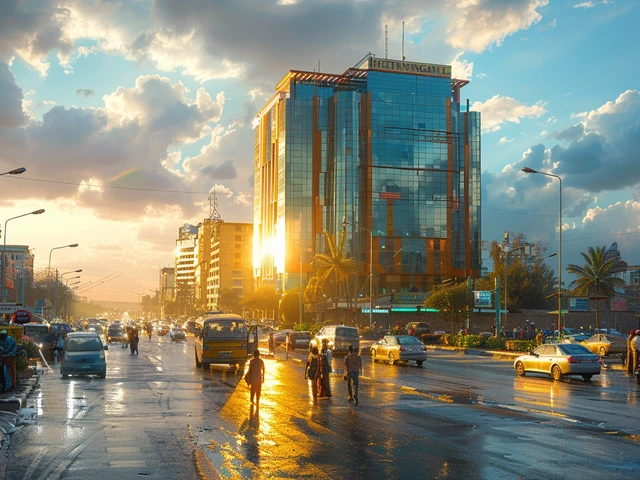 Profitable Banks in Ethiopia: A Deep Dive into Financial Success
Profitable Banks in Ethiopia: A Deep Dive into Financial Success
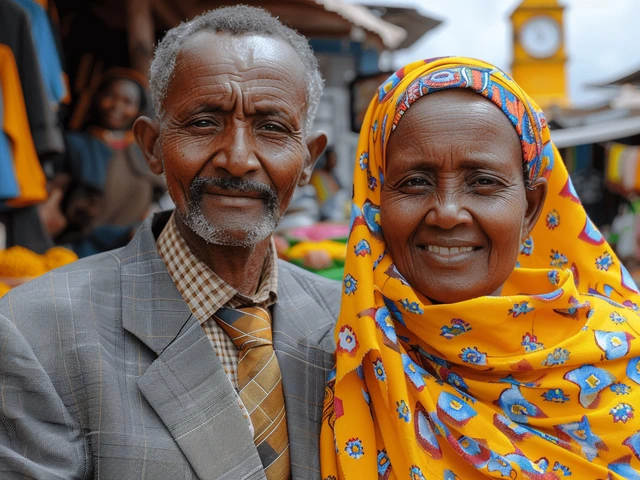 Understanding the Average Work Week in Ethiopia: Insights and Facts
Understanding the Average Work Week in Ethiopia: Insights and Facts
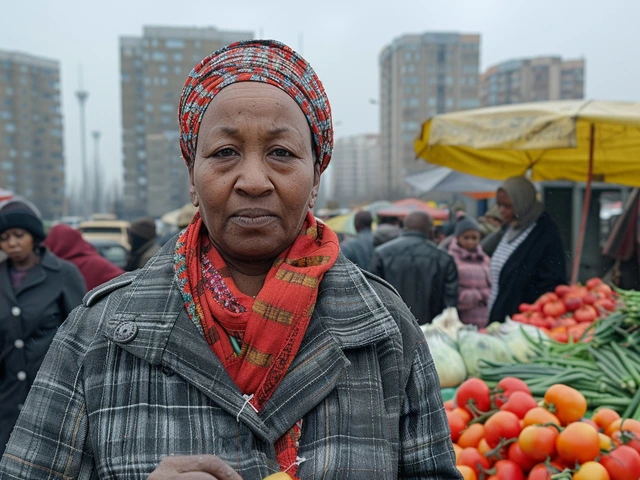 Average Monthly Income in Ethiopia: A Detailed Analysis
Average Monthly Income in Ethiopia: A Detailed Analysis
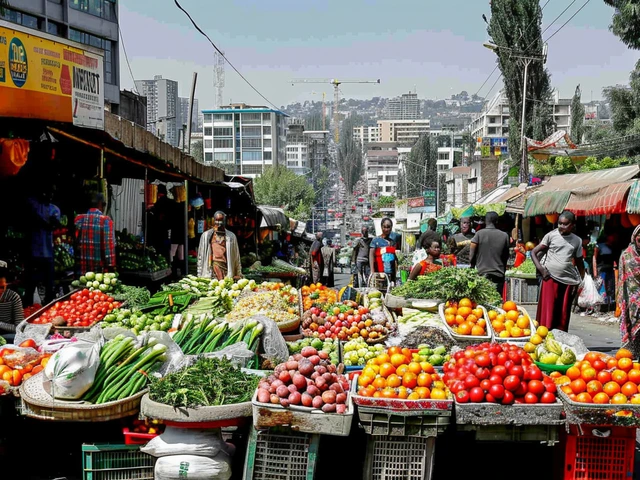 Is Ethiopia One of the Poorest Countries in Africa? Exploring Economic Realities
Is Ethiopia One of the Poorest Countries in Africa? Exploring Economic Realities
Milo Cado
July 23, 2024 AT 17:36Great overview! The mix of daily essentials and tech trends really paints a vivid picture of the continent's evolving consumer landscape 😊. The stats you shared about mobile penetration are especially encouraging, showing that opportunities are expanding fast. Looking forward to more deep dives on regional nuances. Keep the insights coming! 🚀
MONA RAMIDI
July 26, 2024 AT 00:59Ugh, another generic list that glosses over the real challenges. Who even cares about "solar chargers" when billions still lack clean water? The article feels like a corporate brochure, not an honest on‑the‑ground report. It's disappointing to see such shallow coverage of African markets.
grace riehman
July 28, 2024 AT 08:22frankly i think the piece could've used more local voices, like actually talking to market vendors. a lot of the data feels pulled from big reports, not the street level hustle. also, some of the terms were kinda off, like calling maize "staple food" when it's actually a cultural pillar. lol.
Vinay Upadhyay
July 30, 2024 AT 15:45Well, your critique is as nuanced as a rubber‑duck, but let’s fact‑check: the “corporate brochure” label ignores the fact that the article cites actual market data from Statista and the IREA. While the tone might be optimistic, dismissing solar chargers ignores their documented impact on off‑grid communities. Also, “billions still lack clean water” is accurate, not an exaggeration. Precision matters.
Eve Alice Malik
August 1, 2024 AT 23:08Totally get the need for more ground‑level stories. In Kenya, for example, small kiosks selling affordable smartphones have transformed how people pay for groceries, and that kind of detail would make the piece pop. Highlighting how local entrepreneurs adapt global products to fit daily life adds real flavor.
Debbie Billingsley
August 4, 2024 AT 06:32The focus on African consumers should be framed as an opportunity for African‑owned enterprises, not just foreign corporations looking to cash in. Indigenous brands are driving innovation in both hygiene products and renewable energy solutions, and they deserve prominent mention.
Patrick Van den Berghe
August 6, 2024 AT 13:55i see your point but foreign investment does bring needed capital and tech access
Josephine Gardiner
August 8, 2024 AT 21:18A comprehensive synthesis of current market dynamics.
Jordan Fields
August 11, 2024 AT 04:41Data presented aligns with recent industry reports.
Divyaa Patel
August 13, 2024 AT 12:04Ah, the ever‑so‑precise dissection, reminiscent of a courtroom drama where every comma is cross‑examined. Yet beneath the veneer of grammatical rigor lies a deeper narrative: the resilience of African consumers who navigate scarcity with ingenuity. Their stories are not merely footnotes to statistics but verses in a larger epic of adaptation.
Larry Keaton
August 15, 2024 AT 19:27Man, reading this article got me thinking about how many opportunities are literally buzzing across the continent, and I'm not just talking about the obvious tech hype. First off, the daily necessities segment is a goldmine because everyone needs soap, toothpaste and clean water, but the way local entrepreneurs are customizing those products for regional tastes is pure genius. Take for example the rise of handmade shea butter soaps in Ghana – they're not only affordable but also tap into cultural pride, which drives repeat purchases. Then there's the solar lamp market; I met a farmer in Tanzania who said his night‑time productivity doubled once he switched to a solar lantern, and that kind of impact translates directly into higher disposable income. The tech and gadget scene is another beast, with budget smartphones becoming as common as tea kettles, and the ripple effect is massive – from mobile money adoption to e‑learning in remote villages. What’s fascinating is how fintech solutions like M‑Pay are stitching together fragmented economies, letting people transfer money across borders with just a few taps. Fashion and beauty is riding a wave of authenticity, as designers blend traditional prints with modern cuts, and consumers are hungry for products that reflect their identity rather than imported western trends. The e‑commerce platforms such as Jumia have lowered the barrier for small sellers to reach national audiences, which in turn fuels a virtuous cycle of local production and consumption. I also love how renewable energy startups are innovating solar‑powered chargers that can keep phones alive for days, a crucial feature when the grid is unreliable. Moreover, the agricultural sector isn’t just about crops; it's about value‑added processing, like turning cassava into flour on a community level, creating jobs and reducing post‑harvest loss. All these examples underscore a common thread: African markets thrive when solutions are tailored, affordable, and culturally resonant. Investors should take note that throwing generic products at these consumers rarely works; localization is the name of the game. In short, the continent is buzzing with entrepreneurial spirit, and anyone who wants to tap into it needs to listen, adapt, and respect the local context. So, keep an eye on these trends, because the next big success story might just be a small startup you haven't heard of yet. Let's celebrate the ingenuity and support the ecosystems that make it possible.
Liliana Carranza
August 18, 2024 AT 02:50Love the enthusiasm! That last line really hits home – we’ve got to champion the innovators on the ground. The vibe here makes me want to get involved in a startup or two. Keep the positivity flowing! 🌟
Jeff Byrd
August 20, 2024 AT 10:13Sure, because everyone’s suddenly a venture capitalist after reading a Reddit post, right? Let’s not pretend a handful of buzzwords will magically fund the next wave.
Joel Watson
August 22, 2024 AT 17:36The discourse presented offers a valuable macro‑level synthesis, yet it would benefit from a deeper methodological critique of the cited data sources to substantiate its assertions.